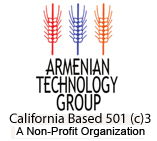Image of Seed Program Overview
Seed Multiplication Program Overview

The Seed Multiplication Program has been at the core of the Armenian Technology Group’s efforts in Armenia. With the collapse of the Soviet Union, Armenia was faced with an urgent need to boost grain cultivation. ATG has responded by providing Armenia’s new class of private farmers with high-quality seed.
ATG’s track record has earned it the trust of Armenia’s wheat growers. Today, about 40 percent of the wheat seed sown in Armenia is generated through, or originates from, ATG’s Seed Multiplication Program.
Armenia is a net importer of wheat and continues to face a shortage of high-quality seed for planting. In 2001, for example, Armenia imported from Russia 20,000 metric tons of barley and 5,000 metric tons of winter wheat seed varieties for planting. On average, the yields of the U.S. varieties introduced by ATG are at least 400 percent higher than the local or Russian varieties.
In 1998, ATG received its first donation of 3,000 metric tons of wheat through the Food for Progress program. The proceeds were used toward establishing a viable private sector seed industry in Armenia. As part of this program, ATG organized an independent Seed Producers Association with 47 members. In 2000, SPA membership increased to 110 active private farmer-members. Every year, ATG procures and transports high quality U.S. foundation seed — mainly wheat, barley, and alfalfa — for the Seed Multiplication Program. In 2000, ATG received its second donation of wheat in the amount of 7,500 metric tons to support the Seed Multiplication Project in Armenia.
According to the International Maze and Wheat Improvement Organization (CIMMYT), the Seed Multiplication Program has been one of the most successful programs of its kind in the former Soviet Union. The project has been recognized and supported by the Armenian government as well as the International Fund for Agricultural Development (IFAD). In 2000, ATG supplied 12,074 farm families with wheat seed for planting. The seed was produced in Armenia by private-sector suppliers ATG has helped to launch.
Through its U.S. agricultural technical advisories, ATG has trained a core group of agronomists in Armenia and stationed them throughout the country. These ATG extension agronomists, in turn, have trained local private farmers by providing educational materials and know-how in their respective regions. Quarterly training seminars and field demonstrations are conducted through the country.

Follow Us